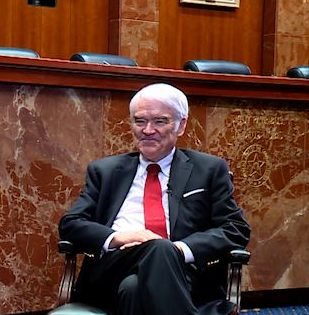AUSTIN (KXAN) — A former Texas Supreme Court Chief Justice will chair a task force to “guide the safe, ethical, and effective use of [artificial intelligence] in the criminal justice system,” according to a press release.
The nonpartisan think tank Council on Criminal Justice (CCJ) said in its Monday release that 14 others will join former Chief Justice Nathan Hecht on the task force. The group includes AI developers/researchers, law enforcement members, civil rights advocates, community leaders and formerly incarcerated people.
AI is already in use by Central Texas law enforcement agencies for tasks such as facial recognition and non-emergency reporting. However, some have concerns about the use of AI to write crime reports and court filings.
The technology is also being used to commit crimes, warn cybersecurity researchers and the FBI.
“AI is developing at breakneck speed, delivering technological advancements unlike any we have seen before, and presenting both significant opportunities and formidable challenges for the criminal justice system,” said Hecht in the release.
Hecht left SCOTX in 2024 after 35 years on the state’s high court, due to Texas law that sets a retirement age for judges. In November 2023, Texas voters rejected a ballot measure to raise that age from 75 to 79.
In January, Jimmy Blacklock was appointed for the chief justice role.
The task force formed from a partnership between CCJ and global policy think tank RAND (formerly RAND Corporation), according to the release. It has the following goals:
- Development of principles to guide safe, ethical and effective use of AI in criminal justice settings;
- Translating the principles into specific, operationalized standards for AI products and procurement that can be used by agency leaders, policymakers, and community groups alike; and,
- Publishing high-quality, accessible research for policymakers, agencies and organizations, key individuals, and the field at large.
“This Task Force will meet the urgent need for credible guidance to help policymakers and practitioners navigate a complex and rapidly evolving landscape in ways that maximize benefits, minimize harms, and improve justice,” Hecht said.
